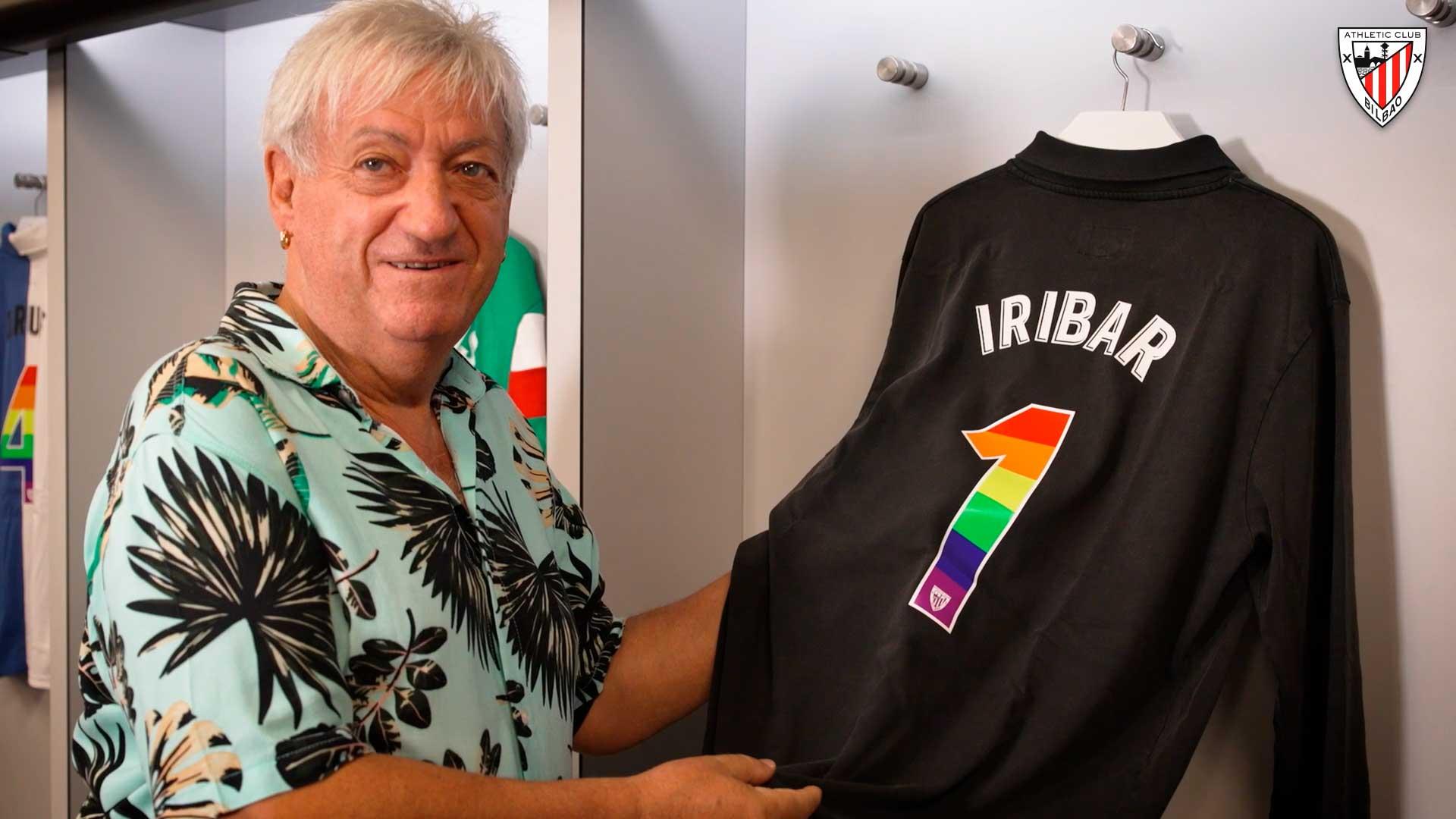
La Otxoa: "It's a day to celebrate and be proud"
La Otxoa: "It's a day to celebrate and be proud"
Athletic Club sat down with local LGBTQIA+ rights activist and lifelong Athletic fan, Jose Antonio 'La Otxoa' Niefla
To celebrate International LGBTQIA+ Pride Day, Athletic Club wanted to show its support everyone's right to love and live freely their whatever their sexual orientation.
To do so, we sat down with performer, singer and gay rights activist José Antonio 'La Otxoa' Nielfa. Born in Bilbao, José is an avid Athletic fan.
The interview took place in the first-team dressing room at San Mamés, where the habitual strips had been replaced with with vintage shirts of historic Athletic players whose respective numbers were printed with colours of the LGBTQ+ flag
Born in 1947, José Antonio's family ran a bar in the San Francisco neighbourhood before moving to Santutxu. From an early age he showed a passion for Athletic, while at the same time he made his way in search of freedoms that were denied at the time.
He excelled in the world of football, but the toxic masculinity of the dressing rooms at the time put him off the sport, making him swap boots for heels and mud for the stage. But he never gave up his love for Los Leones
He spent part of his youth in Torremolinos and Barcelona, surrounding himself with artists and intellectuals, creating spaces of freedom for gay people. However, the repression of the dictatorship meant he spent nearly two months in prison.
What's more, in 1971, he was arrested again during a raid on a bar in Bilbao. His trips to Latin America have also been a constant feature of his life, and he achieved great notoriety in countries such as Argentina.
During the 1970s, his work and popularity grew in a Bilbao that wanted to move on from the greyness of dictatorship to a melting pot of recovering freedoms. On the fields, the Ikurriña resurfaced in the famous Atotxa derby in 1976 with the lions lining up behind Jose Angel Iribar, who held the Basque flag aloft alongside Real Sociedad's Inaxio Kortabarria.
Meanwhile, Jose Antonio's performances as 'La Otxoa' began to cause a sensation in the city. However, it was his hit 'Libérate' and his concerts in Bilbao's fiestas that went down in the history. Shortly afterwards, his appearance in Imanol Uribe's film, 'La Muerte de Mikel', where he sang a tribute song to Athletic while wearing the red and white strip also made a big impact.
A groundbreaker, transgressor, countercultural and committed, it was also significant to see him carrying the baton in favour of the rights of LGBTQ+ people in the first editions of Korrika. Likewise, his bars became a staple of Bilbao night life for years. They were his own rainbow cathedrals. At the same time, he never missed his weekend appointment at San Mames.
During his childhood he watched the 1958 Cop winners and was a deep admirer of Iribar and Fidel Uriarte. He also journeyed to Las Palmas in 1983 to watch Athletic secure the LaLiga title. Today, he is a staunch supporter of the Club's women's team and currently has full confidence in the future of players such as Oihan Sancet.
In the face of the regressive rhetoric that is sweeping the world, he calls for hope, the same hope that his generation has always held. He does so wearing an armband with the LGBTQ+ colours and the Athletic crest, while surrounded by shirts from all eras that reflect the club's historical commitment uphold people's rights to love, live and express themselves freely at all times.
